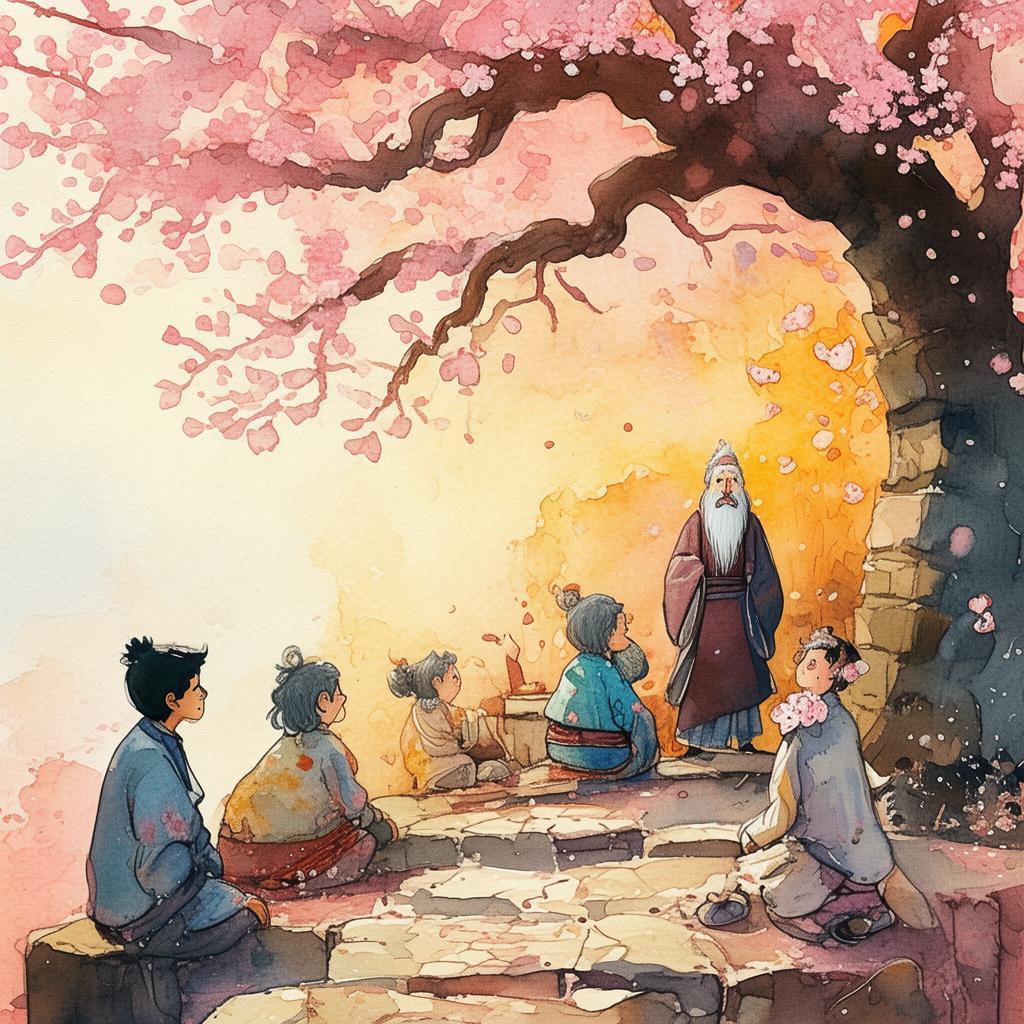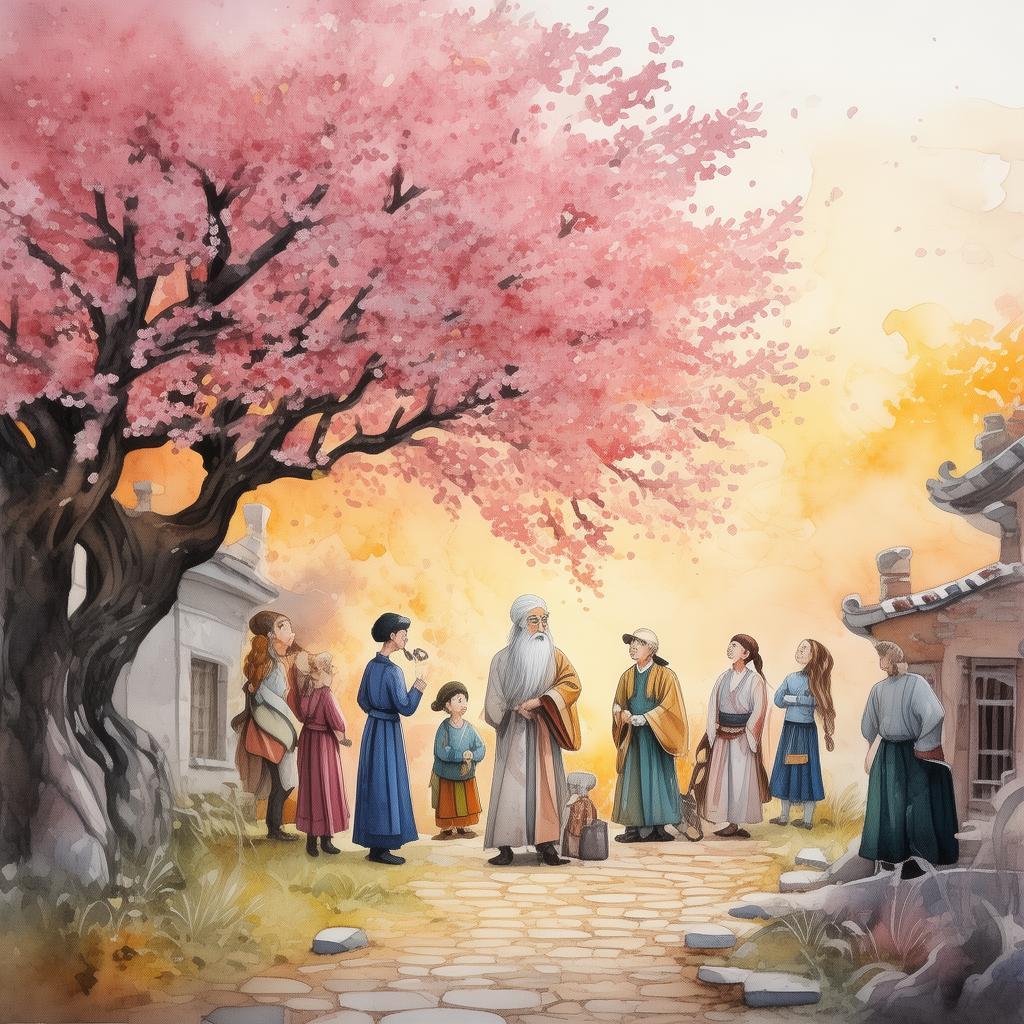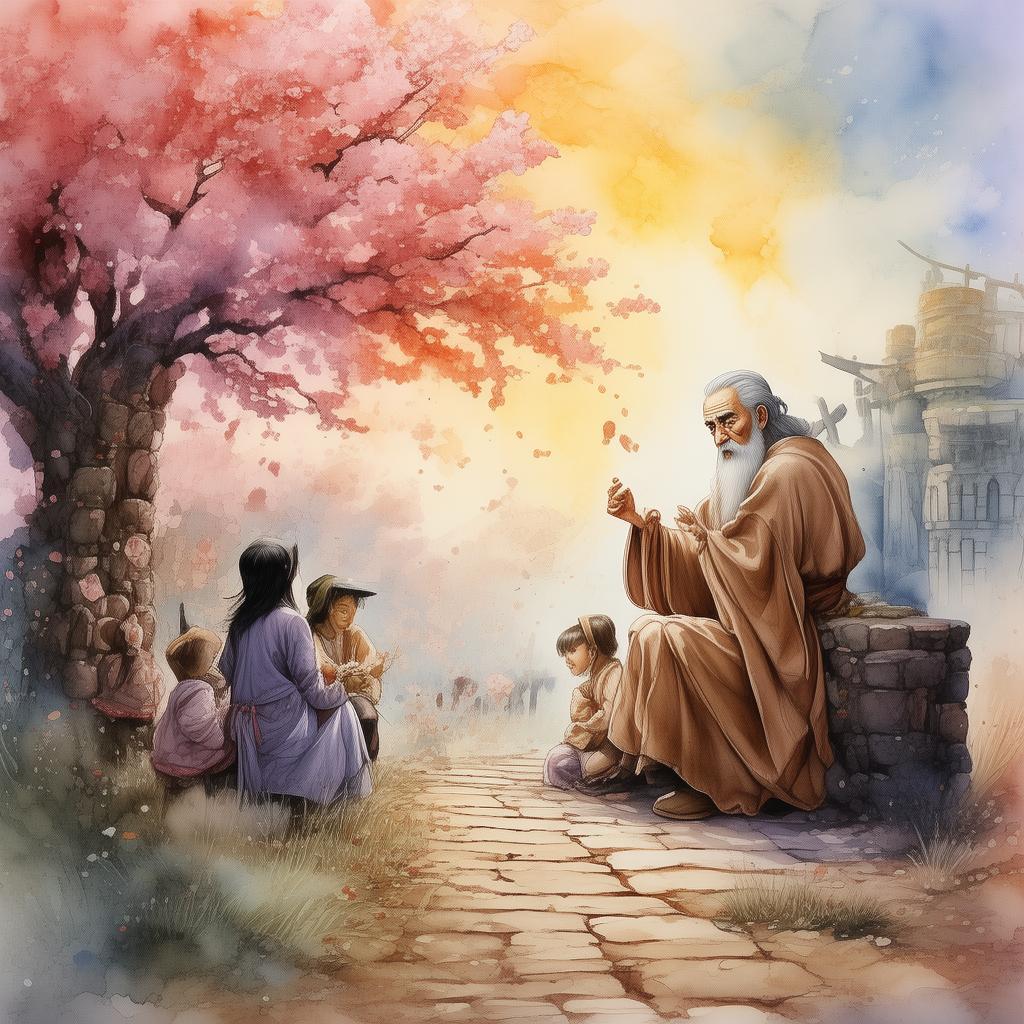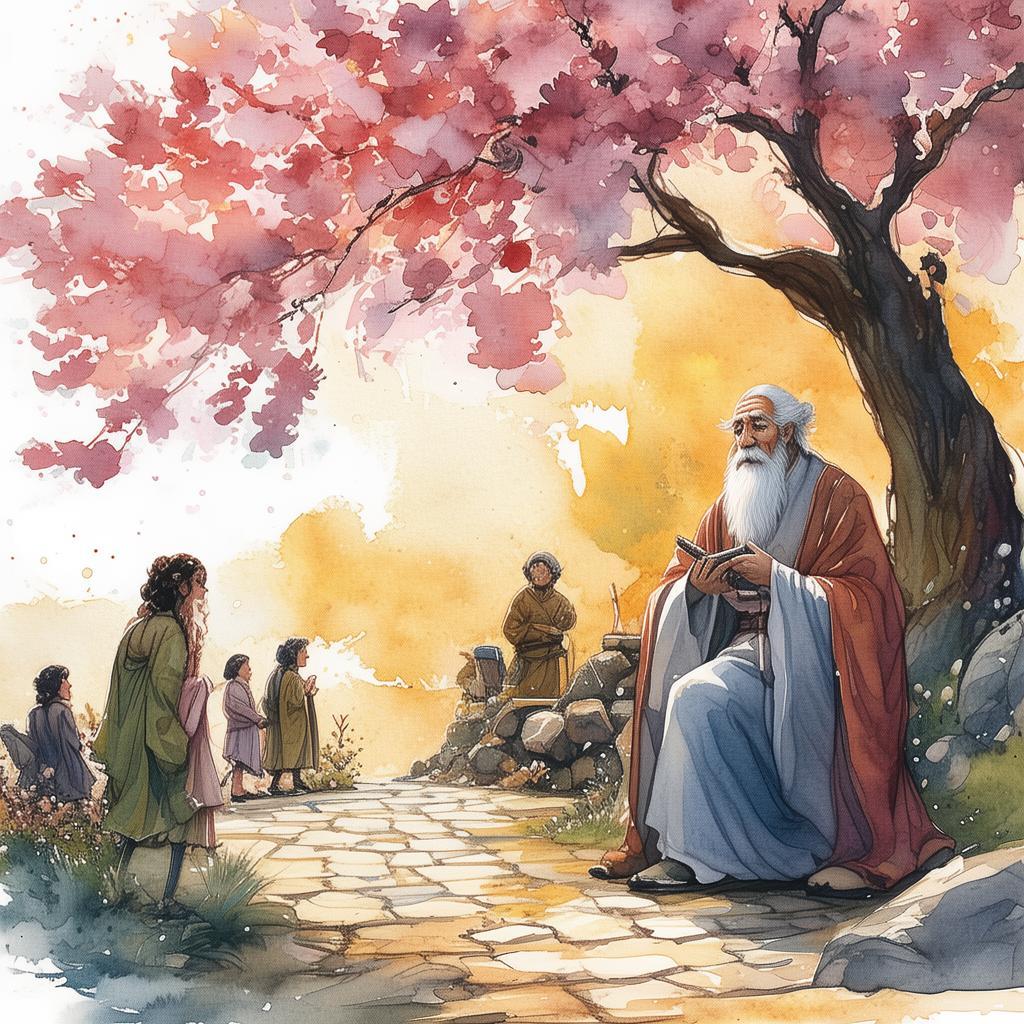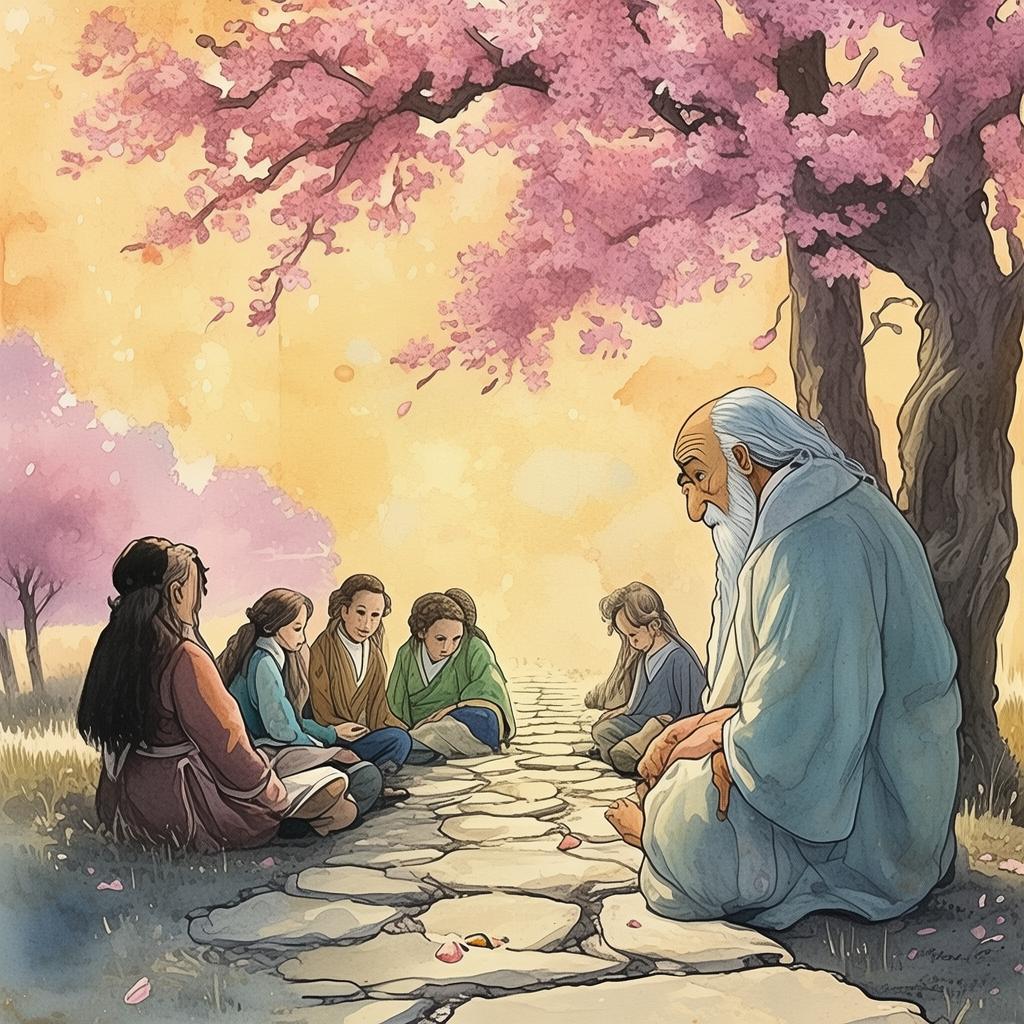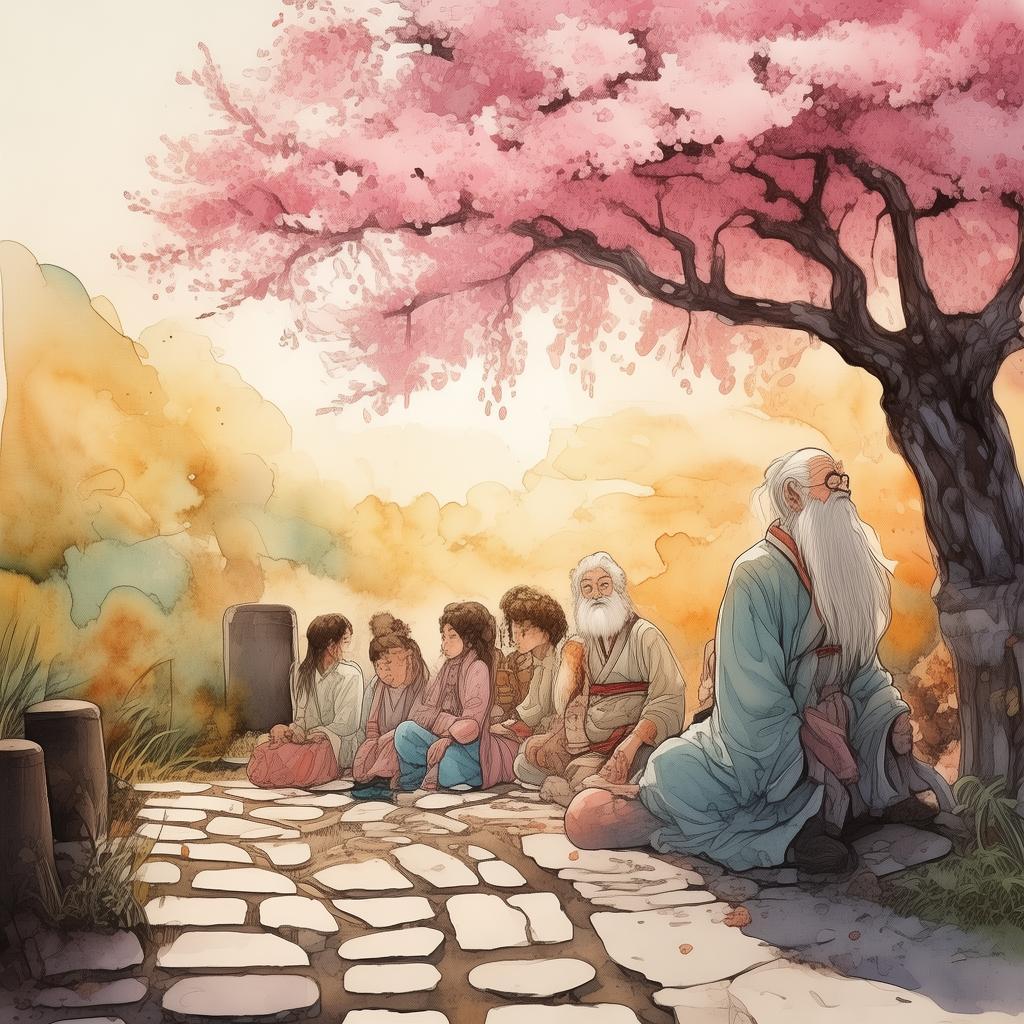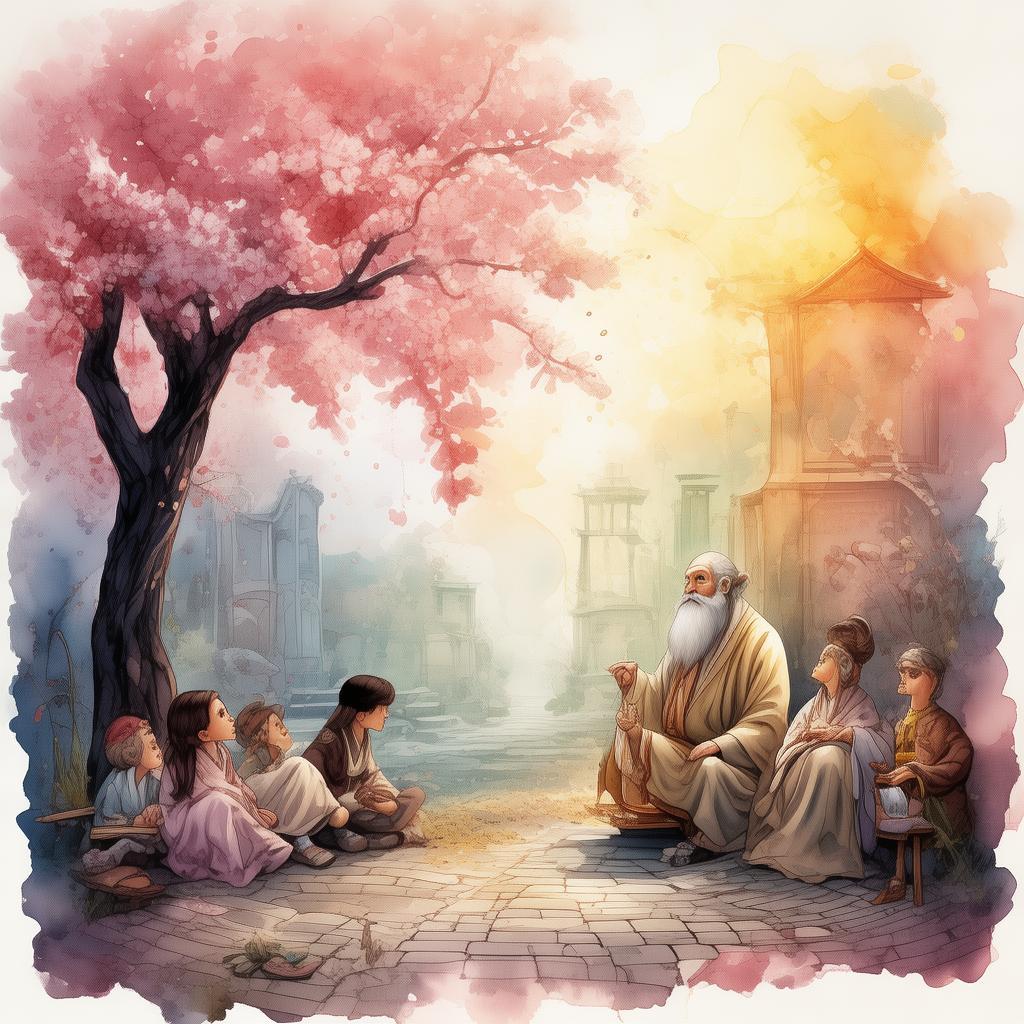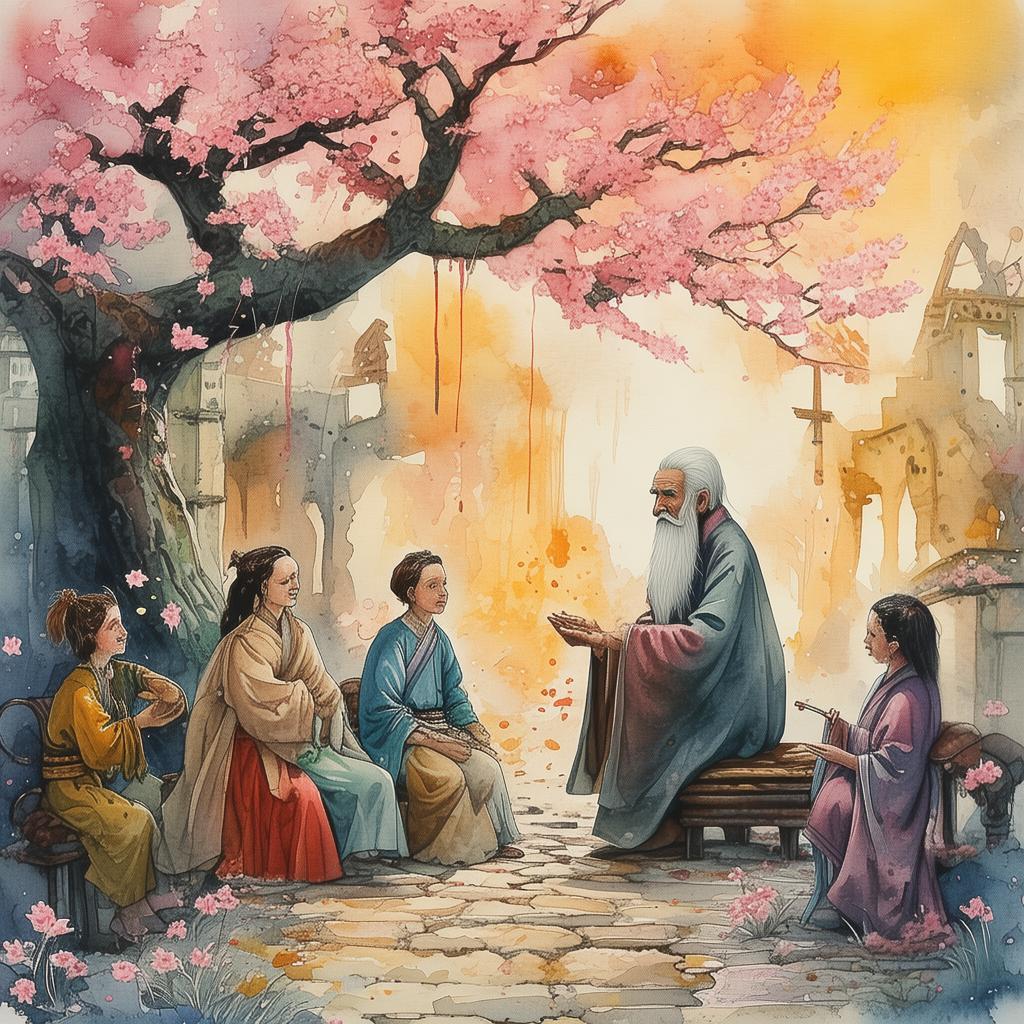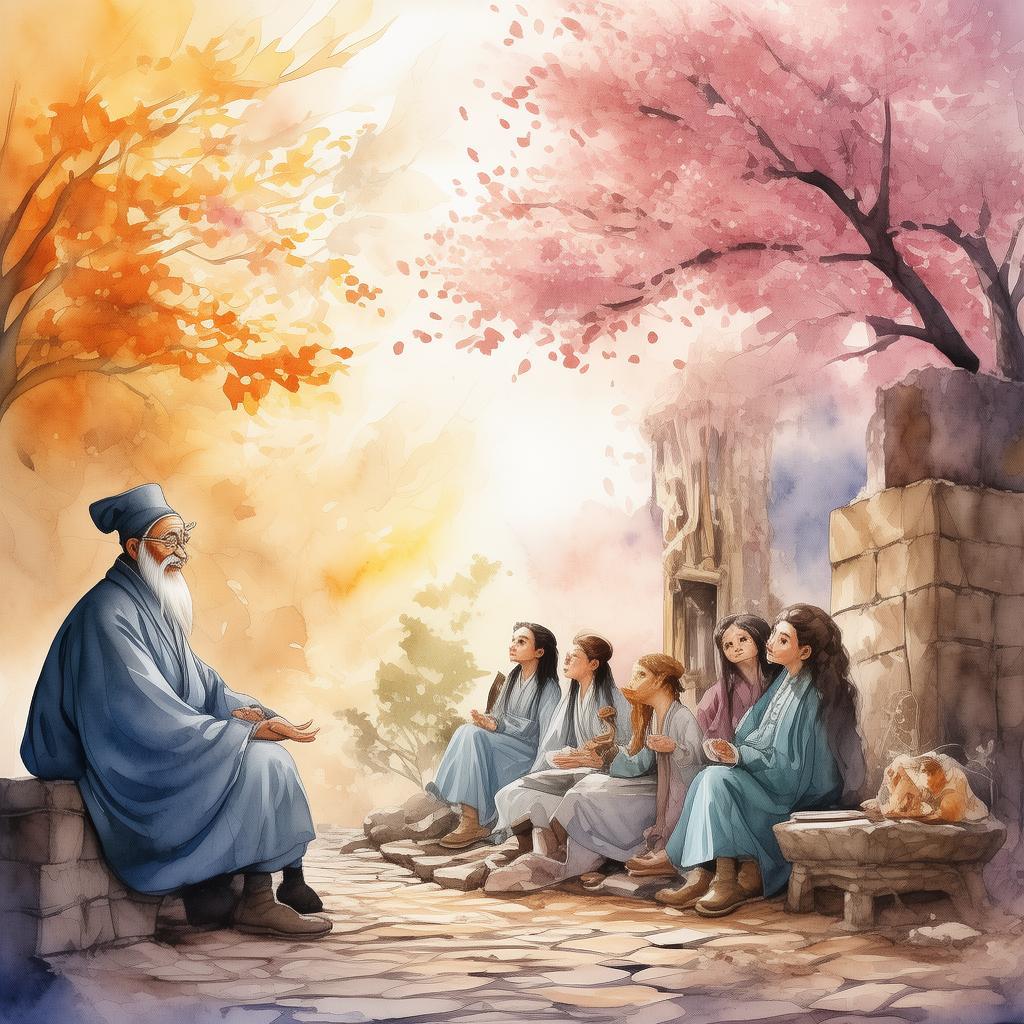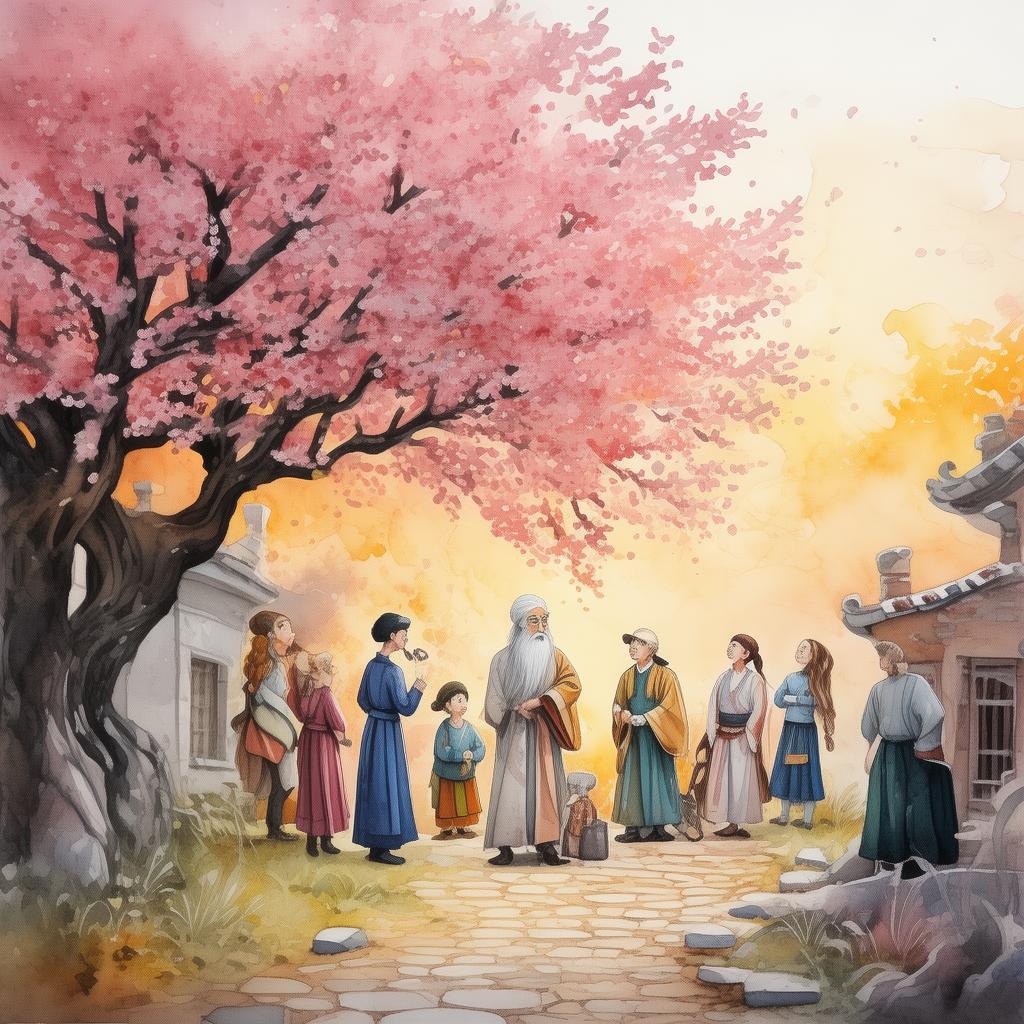The Monk's Calm in the Storm
In the heart of a bustling ancient Chinese town, there lived an elderly monk named Zhen. Known far and wide for his serene demeanor and profound wisdom, Zhen was the keeper of an ancient temple, nestled among the mountains where the mist would often linger, shrouding the world in mystery. It was said that Zhen's calmness was not the product of inaction but a reflection of his deep understanding of the nature of reality.
One stormy evening, as lightning danced across the sky and the winds roared, a young man named Ming, who had heard tales of the monk's extraordinary calm, made his way to the temple. Ming was a man of intense passion, often driven by his emotions, and he sought Zhen's counsel to find a way to temper his own fiery nature.
As Ming approached the temple, he was greeted by a serene figure, standing amidst the swirling chaos of the storm. Zhen's eyes were open, and his gaze seemed to pierce through the storm clouds themselves, revealing a world of peace.
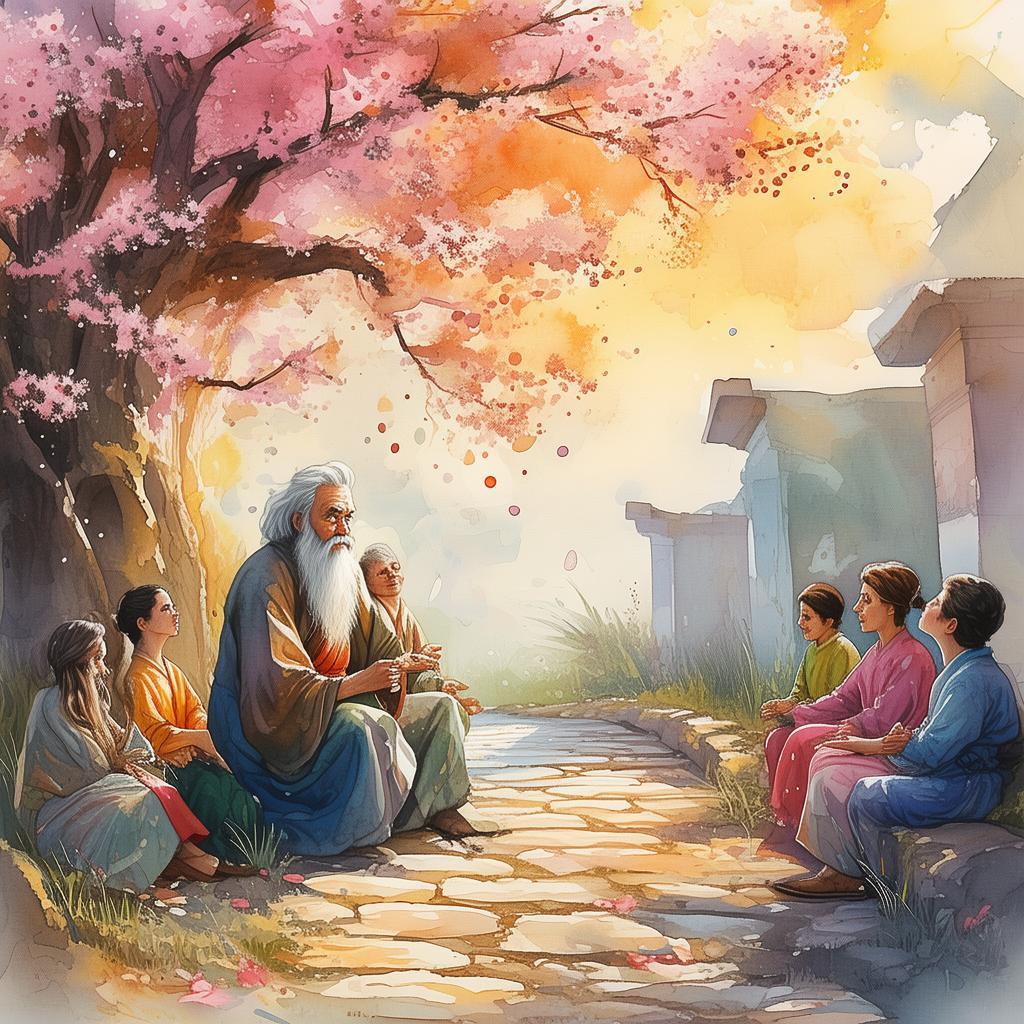
"Welcome, Ming," Zhen said, his voice as steady as the heartbeat of the earth beneath them. "The storm outside is a reflection of your inner turmoil. Your temper, like the storm, is both a force of creation and destruction. To master it, you must understand its nature."
Ming, taken aback by the monk's composure, asked, "How do I begin to understand the nature of my temper?"
Zhen smiled gently and replied, "The nature of reality is not fixed but fluid. It changes with your perception. To temper your temper, you must first accept that reality is a dance of opposites—calm and storm, joy and sorrow. It is not the storm that defines the landscape, but the presence of the observer."
Ming, though skeptical, decided to follow Zhen's advice. The monk led him to a small, quiet room within the temple, away from the tumultuous storm. There, Zhen showed Ming an old scroll, its edges frayed by time.
"This scroll," Zhen began, "contains a tale of a wise man who lived during a time of great strife. He was known for his temper, but he sought to change. The tale teaches that temper is not about suppressing emotions but about recognizing their fleeting nature."
Ming listened intently as Zhen recounted the story of the wise man, who would during times of anger, retreat to a secluded cave, where he would meditate and observe the transient nature of his emotions. It was through this practice that he came to understand that his temper was a part of him, but not the essence of his being.
As days turned into weeks, Ming practiced meditation, observing his emotions as if they were clouds passing in the sky. He began to notice that his temper did not control him, but rather, he could control it. The storm outside continued to rage, but within him, there was a growing calm.
One evening, as the storm reached its peak, Ming found himself face-to-face with a dilemma. A group of bandits had taken refuge in the temple, seeking shelter from the storm. Ming's first instinct was to flee, but he remembered Zhen's words about the fluid nature of reality.
Instead, he stood his ground, offering the bandits food and warmth. As the storm subsided, the bandits revealed their true intentions. They had been driven by desperation and anger, much like Ming once was. Ming listened to their stories, understanding that anger was a common thread among them.
In a moment of clarity, Ming realized that his temper was no longer a storm to be feared but a force to be harnessed. With calmness and compassion, he addressed the bandits, sharing his own journey of temperance. Moved by his words, the bandits chose to leave, vowing to change their ways.
As the sun rose the next morning, casting its first light over the temple, Ming felt a profound sense of peace. He had not only tempered his own nature but had also helped others to do the same.
Zhen, observing Ming's transformation, smiled and said, "The nature of reality is that it is ever-changing. Your temper, like the storm, is not a fixed entity. You have learned to ride the waves of emotion, not to be swept away by them."
And so, Ming left the temple, a man whose temper was now a part of his wisdom, not a barrier to it. He spread the teachings of Zhen, and the world, though filled with storms, found a way to embrace the calm within.
✨ Original Statement ✨
All articles published on this website (including but not limited to text, images, videos, and other content) are original or authorized for reposting and are protected by relevant laws. Without the explicit written permission of this website, no individual or organization may copy, modify, repost, or use the content for commercial purposes.
If you need to quote or cooperate, please contact this site for authorization. We reserve the right to pursue legal responsibility for any unauthorized use.
Hereby declared.
